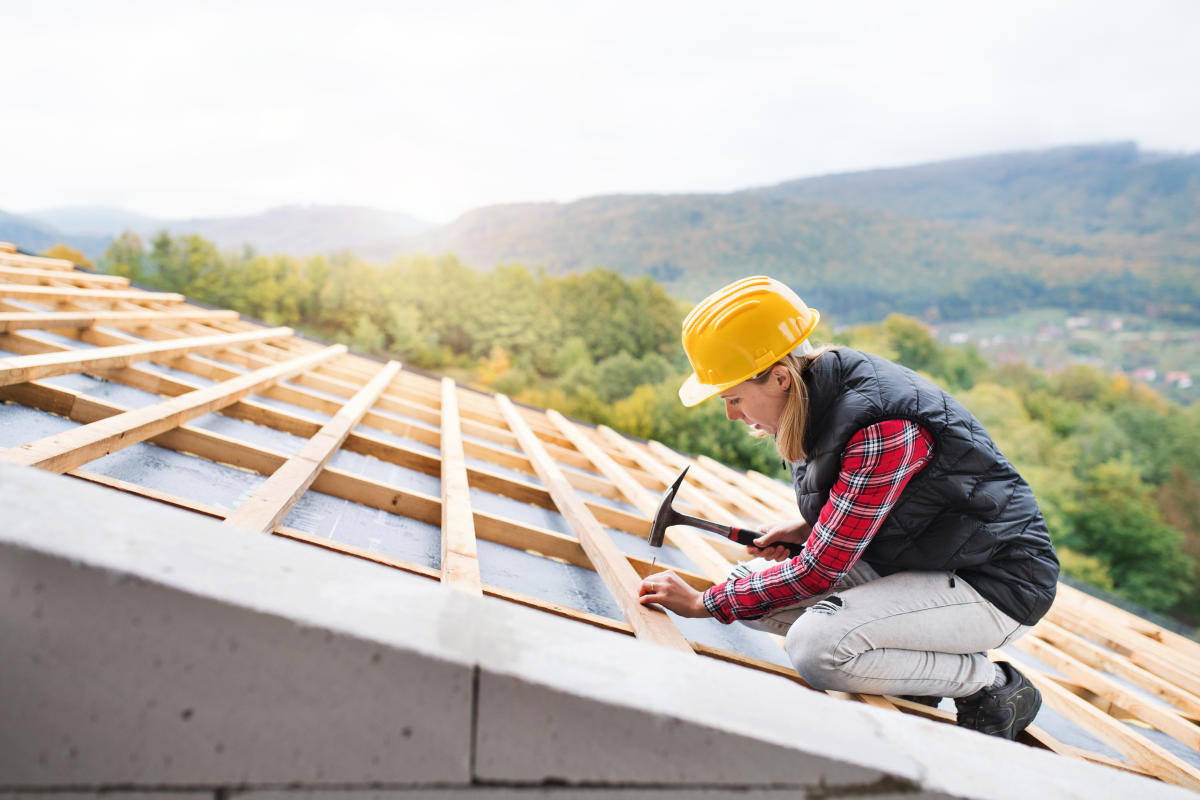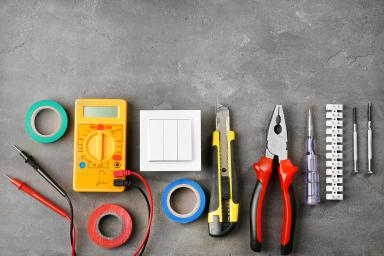6 Steps To Hire A Local Roofer

Think of your roof as the last line of defense between your home’s interior and the elements of the outside world. Yes, it’s that important. So maintaining the integrity of your roof, and repairing or replacing it when the need arises, is essential to protecting your home and family. While some kinds of limited home repairs offer a gratifying weekend challenge to homeowners, roof repair should not be one of them. Accessing a roof almost always requires the use of a ladder. And, according to the CDC, more than 500,000 people are treated for ladder-related injuries annually, while 300 people die each year in ladder accidents. Working on the surface of a roof, meanwhile, can present even more dangers. If your roof is showing signs of damage from age or weather, or you’re experiencing a critical roof issue that requires immediate attention, a professional roofer is your best asset. Here’s how to hire a local roofer who’ll do the job right, and guarantee their work—and your peace of mind—after the job is done.
Look for signs of roof damage and identify problems.
Speak to several roofing companies and ask these questions.
Schedule a roof inspection.
Ask for a full explanation of the roofer’s estimate.
Prepare your household for roof repair or replacement.
Get a warranty and/or guarantee and understand what it covers.
Look for signs of roof damage and identify problems.
Repair is essential any time a roof shows symptoms of damage, as an inadequate roof can cause issues throughout a home. Some of the most common signs that your roof needs repairs include:
Shingles that are cracked, curled, or damaged
Shingles that look dark or wet
Shingles that are shedding significant amounts of granules in the gutter
Wear around openings, such as around a chimney or vent
Staining on the walls and ceilings
Leaks after storms
A sagging appearance
A substantial increase in energy bills for no obvious reason
If you're considering a roof inspection following a major weather event, a good first step is to contact your homeowners’ insurance provider. Depending on the cause of the roof damage, repair or replacement costs may be partially or fully covered by insurance. Your insurance company will provide an inspector to assess the damage and coverage. If damage or a need for roof replacement is discovered, start looking for a local roofing company as soon as possible.
ExperTip: Even if your homeowners’ insurance doesn’t cover a roof repair, it may still cover damage caused by the roof problem. For example, your insurance company may deem a roof leak to be caused by normal wear and tear, and therefore not covered. But damage to your walls or floors as a result of the leak may be covered by your policy.
Speak to several local roofing companies and ask these questions.
A good roofer is one who can diagnose damage, come up with expert solutions, and perform an excellent job on any roof repairs. Finding a qualified, trustworthy roofer who’s right for the job involves starting with a vetted group of pros, and getting answers to these 11 important questions:
How long have you been in the roofing business?
How long have you been a roofer locally?
What’s involved in your inspection process, and what parts of my home will you need access to for an inspection?
Do you have a current roofing contractor license?
Are you bonded and insured?
What is your company’s physical address?
What will you charge for removal and disposal of my old roofing materials?
Do you have a list of preferred manufacturers?
What warranties do they offer, and how do I submit a claim if I need to?
What safety protocols do you have in place to protect your employees on the job?
Can I speak to several of your past customers?
Avoid taking further steps with any roofer who attempts to provide a verbal bid on the phone, tells you that pricing can only be determined after completing the job, works under the table without insurance, lacks proper contracting credentials, doesn’t have a physical address, or isn’t willing to put you in contact with past customers.
Schedule a roof inspection.
If you have an older roof, or one that’s worn out or degraded from exposure to the elements, a roof inspection is key to determining next steps. In these kinds of cases, insurance is not a factor, since homeowners’ insurance generally only covers damage due to severe weather events and natural disasters.
Though some roofing contractors offer free estimates, you can expect to pay a fee for a full roof inspection. A roof inspection fee averages between $200 and $300, but can be significantly more for very large properties, or if the inspection involves an attic-view assessment.
During the roof inspection, the roofer will look at:
The overall appearance and condition of the roof
The roof valleys and other parts of the roof where water may gather
The shingles or tiles, and whether any are broken or missing
The roof flashing, for signs of rust or other damage
The gutters, for evidence of clogging or deterioration
Chimneys, vents, and skylights, and the seals around them
Once the inspection is complete, the roofer should supply a written estimate of the recommended work, and its cost.
Ask for a full explanation of the roofer’s estimate.
First and foremost, do not settle for a verbal estimate. You should also ask for clarification of any repairs or costs you don't fully understand in the roofer's itemized estimate. A roofer who brushes off your questions or doesn't provide clear, reasonable answers, shouldn't be trusted with repairing or replacing your home's most important layer of protection.
Regarding roof repair costs, these can vary greatly depending on what kind of work is required to fix the damage. Minor repairs can be quite affordable, averaging from $150 to $400. However, moderate and severe problems can be far more expensive, with moderate repairs averaging $400 to $1,000 and critical repairs costing from $1,000 to $3,000. Roof replacement, if warranted, can cost anywhere from around $5,000 to upwards of $25,000, depending on the type of roof and roofing materials.
Prepare your household for roof repairs or replacement.
Roof repair or replacement will involve some amount of dust, debris, equipment and noise. You should be prepared for these, and take steps to protect your home and garden if needed. The good news is that roof repair or replacement, when done by a trained roofing expert or crew, is not a lengthy process. Just understand that time it takes to repair a roof varies considerably based on what's involved. For example, repairing just a few shingles that have worn down with age will take much less time than replacing entire sections of shingles after a storm. Time estimates for common roof repairs include:
Spot repairs: less than 2-3 hours
Reshingling a large area: up to a day
Repairing the flashing on a chimney: less than a day
Repairing a leak: several hours to identify the source of the leak but under an hour to fix it
Gutter removal and replacement: 1-2 days
Ventilation work: 2-3 days with an average-size crew
Roof replacement: 1 day for smaller residential property, up to 2 weeks for larger, steeper or older roofs, or longer if inclement weather delays installation
Get a warranty and/or guarantee and understand what each covers.
While roof materials typically come with a fairly long-term manufacturer's material warranty, which covers materials only (not labor) for 20 or 30 years, it is important to get a workmanship guarantee from your roofing contractor as well. Most roof failures are related to installation issues, not defective materials. And since most manufacturers' material warranties release the roofing contractor from responsibility after just two years, a supplemental work guarantee from the roofer is important. Many roofing contractors will guarantee their work for up to five years. Some roofing contractors will guarantee their work for the lifetime of the product. Whatever guarantee your roofer provides, make sure they provide it in writing, detailing specifics, with a broad coverage scope and a minimum of exclusions that might limit that coverage.
Ready to speak to a pro? Here's our list of the best roofing contractors near you.
Expertise.com StaffAuthor
At Expertise.com, we're passionate about guiding people to find the best in life, whether they're researching how to start a small business, planning a home remodeling project, or discovering a new hobby.




